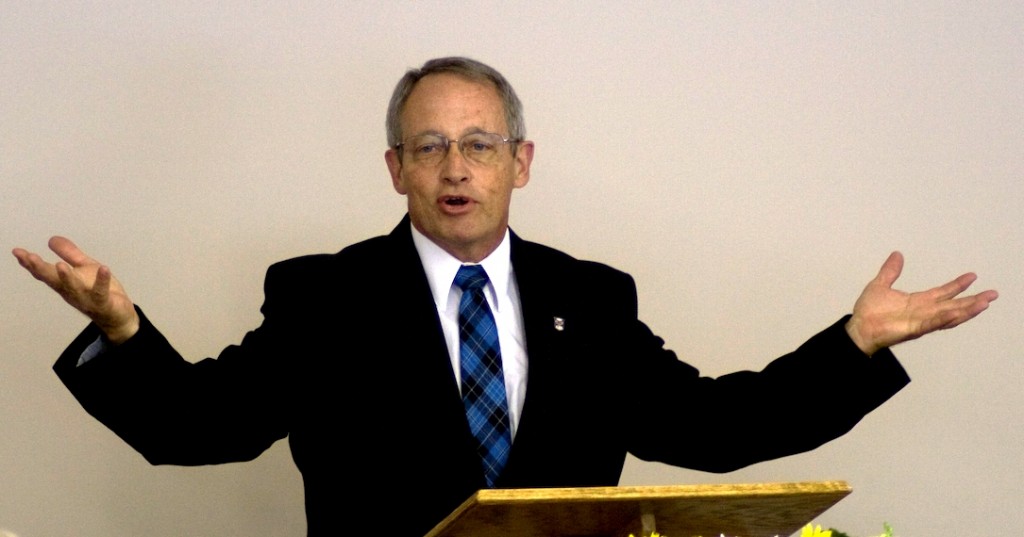Christ And Melchizedek (Hebrews 7:1-17)
 Rev. William L. Barron, June 24, 2018
Rev. William L. Barron, June 24, 2018Part of the Morning Worship at North Greenville Church series, preached at a Sunday Morning service
In Genesis 14, we read about a war between a northern and a southern federation, likely over copper resources. This is the first war described in the Bible. The northern federation prevailed, and the southern people hid in tar pits. The northern forces captured Lot and all his posessions, along with others, and went back to their northern lands. One captive escaped and told Abram, who took a small force and rescued the captives and their posessions. The King of Sodom and Melchizedek, king of Salem, met Abram for a sort of victory celebration. Melchizedek blessed Abram, and Abram tithed to Melchizedek. The King of Sodom offered Abram all the spoil, but Abram refused, saying that God brought the victory; Abram would yield to God's lordship, not the King's. He avoided being indebted to the king. In Hebrews 7, we learn more about Melchizedek, whose name means king of righteousness. This king/priest was a real person, who we learn represented or resembled Jesus. Yet we also learn that Jesus is superior to Melchizedek as an eternal priest, an intercessor between God and man.
| Earlier: | Same day: | Later: |
|---|---|---|
| « Lift Up Your Eyes And See | None | Righteousness Exalts A Nation » |
Hebrews 7:1–17 (Listen)
7:1 For this Melchizedek, king of Salem, priest of the Most High God, met Abraham returning from the slaughter of the kings and blessed him, 2 and to him Abraham apportioned a tenth part of everything. He is first, by translation of his name, king of righteousness, and then he is also king of Salem, that is, king of peace. 3 He is without father or mother or genealogy, having neither beginning of days nor end of life, but resembling the Son of God he continues a priest forever.
4 See how great this man was to whom Abraham the patriarch gave a tenth of the spoils! 5 And those descendants of Levi who receive the priestly office have a commandment in the law to take tithes from the people, that is, from their brothers, though these also are descended from Abraham. 6 But this man who does not have his descent from them received tithes from Abraham and blessed him who had the promises. 7 It is beyond dispute that the inferior is blessed by the superior. 8 In the one case tithes are received by mortal men, but in the other case, by one of whom it is testified that he lives. 9 One might even say that Levi himself, who receives tithes, paid tithes through Abraham, 10 for he was still in the loins of his ancestor when Melchizedek met him.
11 Now if perfection had been attainable through the Levitical priesthood (for under it the people received the law), what further need would there have been for another priest to arise after the order of Melchizedek, rather than one named after the order of Aaron? 12 For when there is a change in the priesthood, there is necessarily a change in the law as well. 13 For the one of whom these things are spoken belonged to another tribe, from which no one has ever served at the altar. 14 For it is evident that our Lord was descended from Judah, and in connection with that tribe Moses said nothing about priests.
15 This becomes even more evident when another priest arises in the likeness of Melchizedek, 16 who has become a priest, not on the basis of a legal requirement concerning bodily descent, but by the power of an indestructible life. 17 For it is witnessed of him,
“You are a priest forever,
after the order of Melchizedek.”
(ESV)
